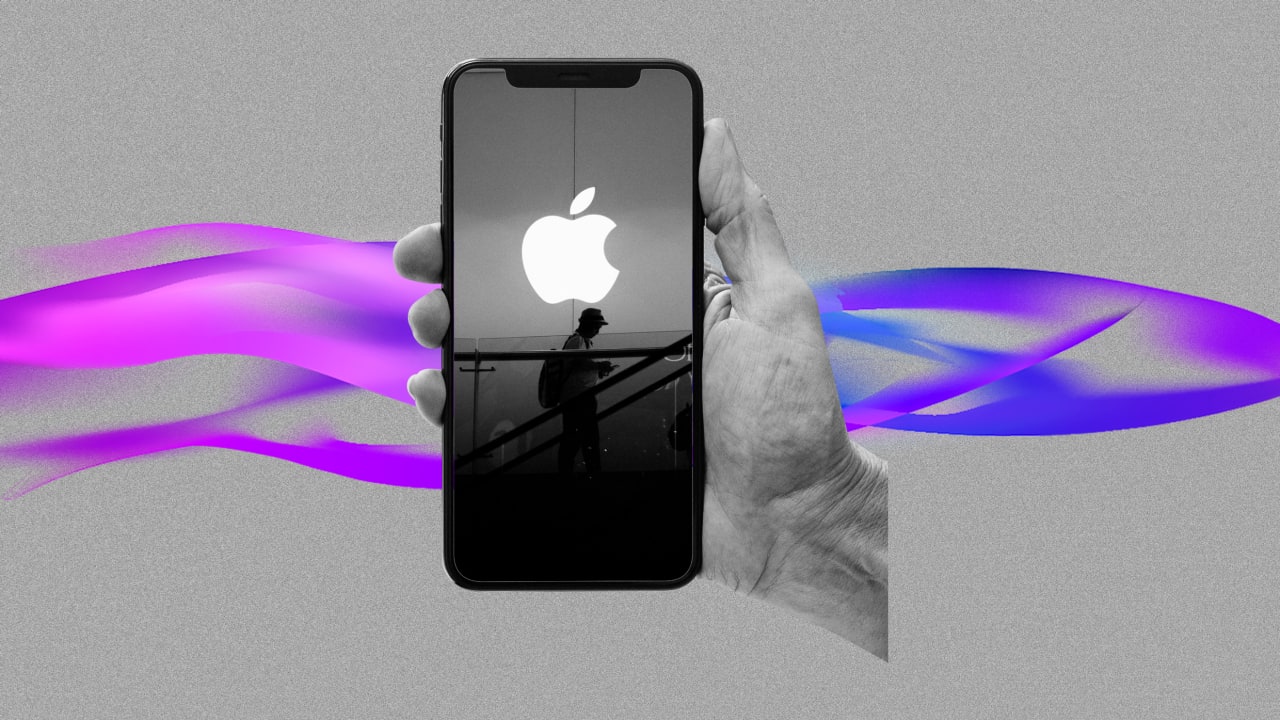Analyzing Apple's Position In The AI Revolution

Table of Contents
Apple's AI-Powered Features in Existing Products
Apple's AI prowess isn't just a futuristic promise; it's woven into the fabric of many existing products. Let's explore some key examples.
Siri's Evolution and Future Potential
Siri, Apple's virtual assistant, has come a long way since its inception. While initially criticized for its limitations compared to competitors like Google Assistant and Amazon Alexa, Siri has steadily improved its natural language processing (NLP) capabilities and voice recognition accuracy.
- Improved natural language processing: Siri now understands more complex commands and contextual information, offering more nuanced responses.
- Advancements in voice recognition: Improved accuracy in noisy environments and better understanding of different accents enhance user experience.
- Integration with other Apple services: Seamless integration with HomeKit for smart home control, CarPlay for in-car assistance, and other Apple services strengthens Siri's utility.
- Competition with Google Assistant and Amazon Alexa: While still catching up in certain areas like third-party app integration, Siri continues to improve and leverage Apple's strong ecosystem.
The future of Siri hinges on further advancements in NLP, more robust multi-modal interactions (combining voice, text, and images), and deeper integration across Apple's product ecosystem. The key to its continued success lies in improving its ability to anticipate user needs and proactively offer helpful suggestions, a key differentiator in the competitive AI assistant market.
Image Recognition and Computer Vision in Photos and other Apps
Apple's expertise in computer vision is evident in its image processing capabilities. AI plays a crucial role in enhancing the user experience across various applications.
- Photo organization and tagging: AI automatically organizes photos based on people, places, and objects, making it easier to find specific images.
- Object recognition: Apple's AI can identify objects within images, enabling features like visual search and enhanced accessibility options.
- Scene detection: AI analyzes images to identify scenes (e.g., landscapes, portraits) and automatically applies appropriate adjustments.
- Live Text: This groundbreaking feature utilizes on-device machine learning to extract text from images, making it incredibly useful for a range of tasks.
- Improvements in camera quality via AI-driven image processing: AI algorithms enhance image quality by optimizing exposure, contrast, and noise reduction.
These AI-powered features transform the way users interact with their photos and other visual content, showcasing Apple's commitment to leveraging machine learning for practical and user-friendly applications.
On-Device AI and Privacy
A defining characteristic of Apple's AI approach is its strong emphasis on on-device processing. This commitment to privacy significantly differentiates it from competitors.
- Reduced reliance on cloud processing: Sensitive data remains on the user's device, minimizing privacy risks associated with cloud-based processing.
- Enhanced data security: On-device processing reduces the potential for data breaches and unauthorized access.
- Benefits of on-device processing for speed and offline functionality: Features like Live Text function seamlessly even without an internet connection, providing greater convenience and reliability.
Apple’s dedication to on-device AI, coupled with technologies like differential privacy and federated learning, positions it as a leader in privacy-focused AI development.
Apple's Strategic Investments in AI Research and Development
Apple's commitment to AI is not just about integrating it into existing products; it's also reflected in its substantial investments in research and development.
Acquisitions and Partnerships
Apple’s strategic acquisitions have significantly bolstered its AI capabilities.
- Turi: Acquired in 2016, Turi brought expertise in machine learning and data science, contributing to improvements in Siri and other AI-driven features.
- Inductiv: This acquisition enhanced Apple's capabilities in automated machine learning, streamlining the development of AI models.
While Apple is less open about its partnerships than some competitors, collaborations with research institutions and other tech companies are likely contributing to its AI advancements behind the scenes.
Talent Acquisition and Internal Teams
Apple aggressively recruits top AI talent, attracting leading researchers and engineers from around the globe. Its internal AI research teams focus on various areas, including deep learning, natural language processing, and computer vision. The company’s ability to attract and retain such expertise fuels its ongoing AI innovation.
Apple's Competitive Landscape and Future Outlook in the AI Market
Apple's position in the AI market is unique. While not the most aggressive in releasing public-facing AI models like some competitors, its integrated approach and focus on privacy are major strengths.
Comparison with Competitors
Compared to giants like Google, Microsoft, and Amazon, Apple’s AI strategy is more focused on seamless integration within its ecosystem rather than broad, standalone AI services. Google and Amazon are leaders in cloud-based AI services and large language models, while Microsoft integrates AI heavily into its enterprise software. Apple's strength lies in its user-centric approach, prioritizing privacy and on-device processing.
Predictions for the Future
Looking ahead, we can anticipate further advancements in Apple's AI capabilities, potentially including:
- More sophisticated Siri: Expect more proactive and context-aware assistance, potentially incorporating multi-modal input and more personalized responses.
- New AI-powered hardware: We may see new devices specifically designed to leverage Apple's AI advancements.
- Breakthroughs in on-device AI: Continued innovation in on-device processing will likely lead to more powerful and efficient AI features while preserving user privacy.
Apple’s future in AI is bright. Its unique focus on privacy and integration within its existing ecosystem gives it a strong competitive advantage.
Conclusion
Apple's position in the AI revolution is characterized by a deliberate, privacy-focused approach, leveraging its strengths in hardware, software, and a user-centric ecosystem. While not leading in every AI sub-field, its strategic investments in talent, research, and acquisitions position it for continued growth and innovation. Apple's unique blend of on-device AI and user privacy is a key differentiator, and its future in this space promises exciting advancements. To learn more about Apple's position in the AI revolution, search for more information on "Apple's AI-powered features," "Apple's approach to AI privacy," or delve deeper into "Apple's AI future." We encourage comments and sharing of this article to further the discussion!

Featured Posts
-
 Recent Tesla Stock Drop How It Affected The Price Of Dogecoin And Elon Musks Influence
May 10, 2025
Recent Tesla Stock Drop How It Affected The Price Of Dogecoin And Elon Musks Influence
May 10, 2025 -
 Shifting Sands China Diversifies Canola Imports Post Canada Fallout
May 10, 2025
Shifting Sands China Diversifies Canola Imports Post Canada Fallout
May 10, 2025 -
 Barbashevs Overtime Heroics Golden Knights Even Series With Wild Win
May 10, 2025
Barbashevs Overtime Heroics Golden Knights Even Series With Wild Win
May 10, 2025 -
 Lab Owner Admits To Falsifying Covid Test Results During Pandemic
May 10, 2025
Lab Owner Admits To Falsifying Covid Test Results During Pandemic
May 10, 2025 -
 Trumps Transgender Military Ban Fact Vs Fiction
May 10, 2025
Trumps Transgender Military Ban Fact Vs Fiction
May 10, 2025
